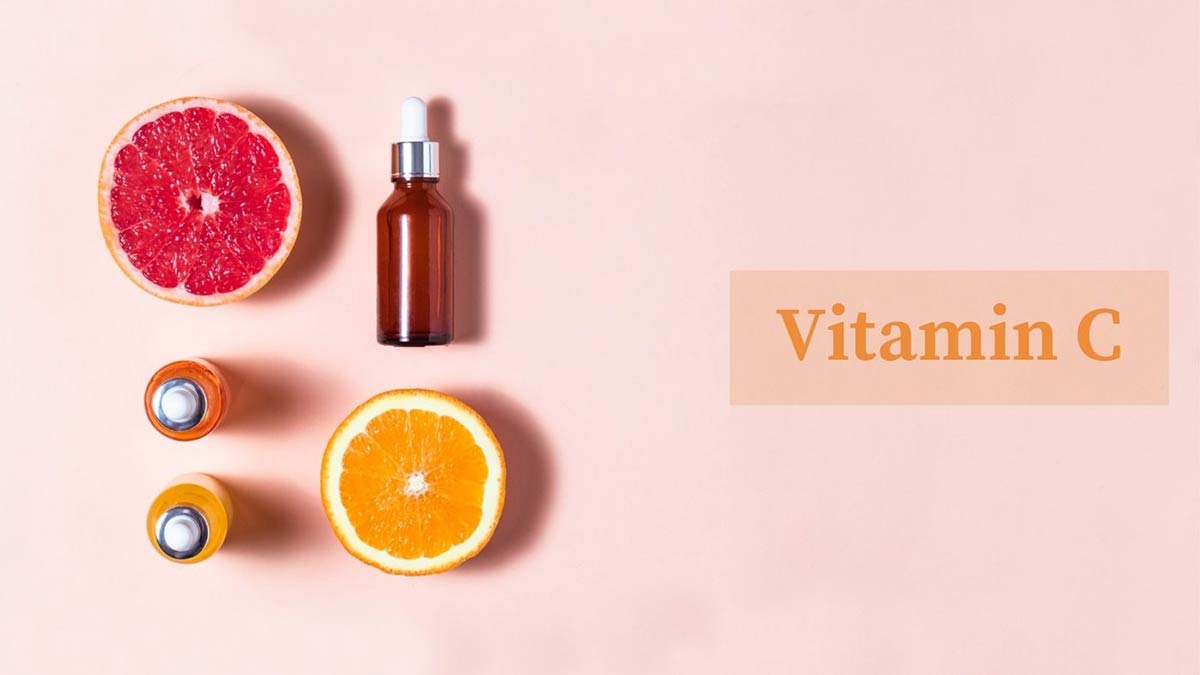
Are you getting darker day by day? Doesn’t your skin produce important proteins and collagen? Is hyperpigmentation ruining the radiance of your skin? There are a few reasons behind it that I’m going to highlight.
You must be thinking about which ingredient can solve this problem or which one should I incorporate into my skincare routine.
Incorporate Vitamin c in your beauty regime or skincare routine. It is a powerful anti-oxidant that increases luminosity or radiance in your skin and gradually removes hyperpigmentation as well.
It has different forms like pure form and derivatives form with different degrees of efficacy.
Here I am going to highlight how vitamin c work on the skin, the benefits of it, types of vitamin c and derivatives, and finally which derivatives work well for your skin.
What is Vitamin C for sensitive skin?

Vitamin c is a powerful ingredient also known as Ascorbic acid or L-Ascorbic acid which is its pure form. It also has derivatives forms with various degrees of efficacy.
It can’t be produced by your body. The only way to get vitamin c is by taking supplements or foods that contain vitamin c.
Vitamin c is a well-known and most popular ingredient for its skin brightening ability. Also helps to even out skin texture, remove fine lines and wrinkles.
Vitamin c is also known as MVP. It protects skin from free radical damage, and UV rays damage as it has a high level of anti-oxidant.
Besides, it helps to stimulate collagen production and elastin in the deepest layer of your skin and thus makes your skin soft, smooth, and bouncy.
Some important queries about topical vitamin c
Does vitamin C actually help skin?
Yes, it is super effective for the skin. Research says the topical application of vitamin c is much effective and helps to produce collagen production. It also inhibits excessive melanin production. It heals and repairs skin. Vitamin c helps to improve skin texture and stop premature aging.
Why vitamin C is bad for skin?
Actually, vitamin c is super acidic with a pH level of 1 – 5. Most of the time it can cause irritation for your skin with other active ingredients like retinol. Because pH levels of this combination do not match and work together and thus increases sensitivity, redness sometimes.
Is vitamin C bad for face?
Not actually, But too much concentration of vitamin c can cause irritation, redness, itching for the beginner. L-Ascorbic acid which is the purest form of vitamin c can cause the same problem with other active ingredients, especially for sensitive skin. So apply lower concentration and later increase the level gradually.
Does vitamin C make pores bigger?
Seriously, excessive application and high concentration can make your pores a little bit bigger. But proper use of it with lower concentration and derivatives of vitamin c like MAP can make your skin awesome, glossy since they produce collagen and improve skin texture.
What can you not mix with vitamin C?
Vitamin c that contains L-Ascorbic acid does not mix with retinol (vitamin A) and niacinamide (vitamin B3). The pH level of these ingredients is absolutely different and canceling each other out. These combinations do not match and work together. But if you want to use them together apply vitamin c during the daytime and retinol at night.
What combination with vitamin c is best for skin?
Vitamin c can be combined with hyaluronic acid and vitamin E. You can apply Ferulic acid which is also an antioxidant that helps to keep vitamin E and c stable.
READ MORE: Ole Henriksen Truth Serum Review
Rich Fruits in vitamin c
There are lots of foods that contain vitamin c. Fruits that are high in vitamin c are citrus fruits, black currents, strawberries, spinach, Brussels sprouts, kiwi, guava, and some fermented food which help to repair and restore tissue, boost your immune system, and also helpful for maintenance of teeth, bones and your cartilage.
Types of vitamin c and derivatives
There are many derivatives of vitamin c available in the market in different forms. Not all derivatives have the same power to penetrate into the deeper layer of the skin or to deal with your specific skin concern.
Most important thing is that it is very much flexible with other active ingredients.
Derivatives of vitamin c have a similar effect as L-Ascorbic acid and it is absolutely suitable for newbies since it is less irritating than a pure form of vitamin c.
Basically, derivatives of vitamin c are broken down by the body enzymes when they penetrate into the skin and eventually turn into Ascorbic acid.
By the way, it is very much important to know which forms or derivatives of vitamin c can be the best friend in your skincare routine according to your skin type.
READ MORE: KLAIRS Freshly Juiced Vitamin C Serum Review
Ascorbic acid or L-Ascorbic acid
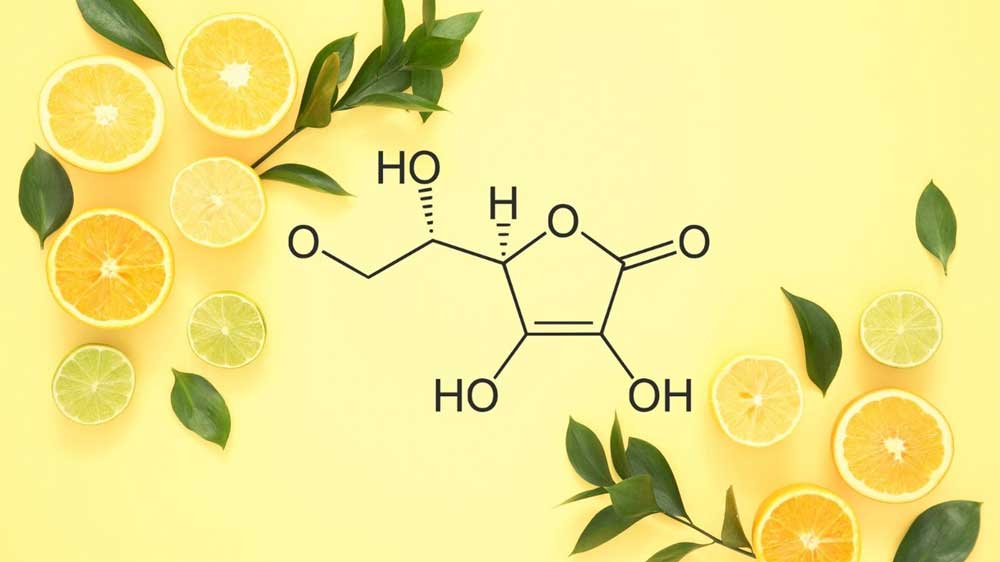
It is the purest and strongest form of vitamin c. But the problem is, L-Ascorbic acid is a very unstable, yes very unstable ingredient.
Unstable means, this ingredient is very much sensitive and can be oxidized easily by light, air, and temperature. Whenever it gets bad, it turns its color in transparent to a little bit browny and yellowish.
But it is the most powerful antioxidant than any others derivatives.
Vitamin c derivatives
Vitamin c derivatives can be found in oil and water-soluble. They have a similar effect as L-Ascorbic acid. And the most important thing is that it is very much flexible with other ingredients, unlike Ascorbic acid.
Sometimes the pure form of vitamin c causes irritation to the sensitive skin, while vitamin c derivatives are absolutely safe and skin-friendly. Because, when vitamin c derivatives penetrate into the skin, they are broken down by the enzyme and eventually turn these derivatives into ascorbic acid.
This process may take time but it’s absolutely good for sensitive skin and for newbies.
The most popular and common derivatives are
Tetrahexyldecyl ascorbate

Well, it sounds a little bit difficult but very stable and gentle for the skin. It is known as THD. The most important feature of THD is oxygen stable, unlike L-Ascorbic acid that means products that contain THD can’t be oxidized easily in the exposure of the air.
THD is the gold standard form of vitamin c derivatives. It is oil soluble and components of fatty acid which help THD to be absorbed in the deeper layer of the skin.
It helps to make your skin bright and also fades your hyperpigmentation.
THD can be found in different forms in the market such as in serum form, oil form, and moisturizer form as well.
This derivative is good for dry skin and those who have dark-spot, melasma, and hyperpigmentation in the skin.
Magnesium Ascorbyl Phosphate
It is simply known as MAP and is a very effective antioxidant for the skin.
MAP is water-soluble. Most importantly it is also a stable form of L-ascorbic acid-like THD since this derivative is not oxidized either in the exposure of the air and light.
It can be found in serum form and moisturizer form as well.
This derivative is very helpful for increasing hydration levels and also for brightening skin tone.
Ascorbyl Glucoside
Ascorbyl Glucoside is water-soluble combined with sugar glucose. It’s also a stable form of vitamin c and penetrates into the skin easily.
It helps to brighten your skin and improve the skin barrier with the pair of niacinamide.
Ethyl Ascorbic acid
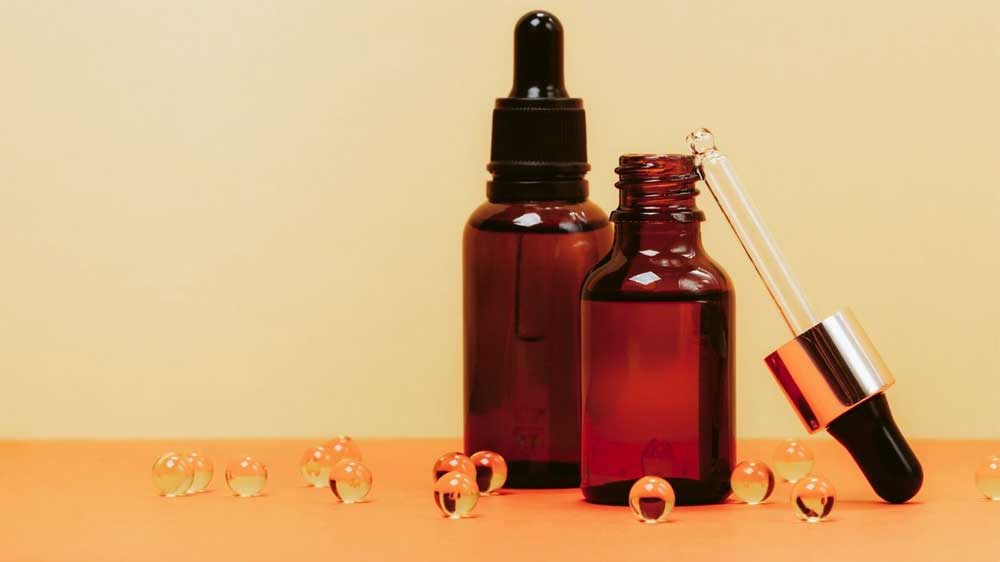
This derivative is very stable, skin-friendly, and non-irritating. It is also a powerful antioxidant that metabolized to L-Ascorbic acid after penetrating into the skin.
This derivative is very much effective among the others in stimulating collagen synthesis that leads to reduce wrinkles and fine lines.
Some important queries about vitamin c derivatives
How can I add vitamin C to my skincare routine?
Add vitamin c with a pH level close to 3.5 in your skincare routine. If you are prone to sensitive skin, so do not use the pure form of vitamin c like L-Ascorbic acid. Use vitamin c derivatives. You can add it during the nighttime after cleansing your skin properly.
Which vitamin C derivative is best for sensitive skin?
You can start with MAP (Magnesium Ascorbyl Phosphate) and THD (Tetrahexyldecyl ascorbate). These are absolutely skin-friendly and gentle for sensitive skin.
Benefits of vitamin c
There are lots of benefits of using vitamin c on the skin. Vitamin c antioxidant is most effective for its anti-aging and brightening properties.
Research shows that it can protect skin from UVA rays and sun damage.
Continuous applying of vitamin c products can improve skin amazingly.
Another important point is that, as your body doesn’t produce or store vitamin c, you should take vitamin c fruits, tablets, or vitamin c supplements to maintain bodily function.
The main function of vitamin c fruit or vitamin c supplement is to improve your immune system and also helps iron and calcium to be absorbed.
But you can get it more effectively if you apply vitamin c topically. Now let’s come to the point.
Sun protection

Vitamin c comes as sun protection in the exposure to the sun rays or UV radiation. It is a powerful antioxidant that helps to protect your skin from free radical damage.
Basically, free radicals are aggravated by impurities, radiation, pollution, and smoking which makes your skin dull and cause signs of premature aging.
Here, vitamin c helps to protect your skin from tissue and cellular damage as it works as a shield in the skin and thus helps to prevent your skin from pigmentation and photoaging.
Heals and repair the skin
Vitamin c has an excellent property to heal and repair the skin. Study shows that vitamin c helps to heal a wound by stimulating collagen production. It helps to produce collagen synthesis in human skin without affecting other proteins synthesis. vitamin c or L-Ascorbic acid send signal collagen gene to synthesize collagen which is very much important to heal the wound and repair skin cells.
The most important thing is that it helps to improve the skin texture by renewal and repair your skin cell.
Brighten your skin

If your skin produces more melanin, you will get darker. Here vitamin c plays an important role. It helps to prevent excessive melanin production which is also the reason for getting darker day by day.
So how does vitamin c brighten skin? Basically, it helps to produce glutathione and vitamin E in your body which helps to produce pheomelanin (light pigment).
So this pheomelanin replaces the dark pigment that helps to make your skin light and bright.
Another specialty of vitamin c is that it has exfoliating properties. Vitamin c exfoliates your upper layer naturally that helps to bring skin radiance, glow and shine to your skin surface.
Improve skin texture
Vitamin c helps to improve your skin texture by repairing skin cell tissues, producing new tissues and collagen in the deeper layer that makes your skin plump, firm, smooth, and glossy.
Basically, topical application of vitamin c creates a shield on your surface that protects your skin from free radical damage, UV rays which help to prevent pigmentation and photoaging. All this helps you to improve your skin texture.
Slows down the aging process
As you get older, collagen production gets decreased with age which is the only reason for skin droopiness and sagging.
Topical vitamin c is extremely useful to boost it up even better than vitamin c supplements or tablets. In fact, a study says that topical application of vitamin c can rejuvenate your skin and slows down your aging process by creating a shield and protecting skin from UV and free radical damage.
Vitamin c serum vs moisturizer
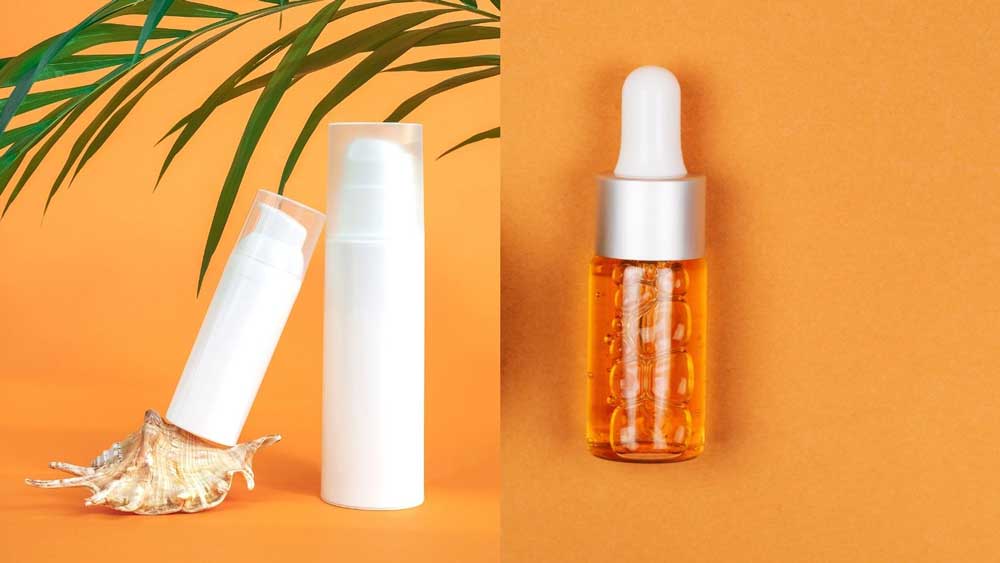
Topical vitamin c can be found in the form of serum and moisturizer. Vitamin c serum is more effective and powerful than vitamin c moisturizer since serum contains a higher concentration of active ingredients. That’s why vitamin c serum is much effective and works better.
Vitamin c serum can be found in water-soluble and thinner than a moisturizer. So it penetrates your skin easily and targets specific skin problems.
Vitamin c serum with a pH level of around 3.5 helps to better absorption in the skin while vitamin c moisturizer just creates a layer on your upper layer of the skin. It can’t penetrate into the deeper layer of the skin like vitamin c serum. By the way, get the best moisturizers that really work with vitamin c and shows no side effects and irritation.
Side effects of vitamin c on skin
Vitamin c is a very powerful antioxidant. It is absolutely acidic. It’s seen that those who have sensitive skin type can’t use it with high concentration like serum formulated.
Vitamin c serum is formulated with a high concentration of active ingredients, so the beginner can’t adapt to it. Beginners should apply vitamin c serum with a lower concentration and should increase the concentration level gradually.
The combination of other active ingredients and L-Ascorbic acid may cause skin irritation, itching, and redness.
So it is better for the beginner to apply vitamin c derivatives like MAP (Magnesium Ascorbyl Phosphate) rather than applying L-Ascorbic acid.
Well, now let’s consider what does vitamin c do for skin one last time.
- Heals and repair skin.
- Helps to stimulate collagen production
- Improves skin texture
- Brighten skin by inhibiting excessive melanin production
- Prevents pigmentation, dark spots and photo aging.
- Stops premature aging.
- Protect skin from UV radiance
- Helps to removes wrinkles and fine lines.
- Exfoliate upper layer of the skin naturally and makes your skin smooth, glossy, younger.
Now it’s time for special tips
What should do
- Always keep the product with vitamin c ingredient like serum in cool and dry place
- If you choose a vitamin c serum, it is better to choose the pH level close to 3.5
- Though it’s an effective antioxidant, you should wear sunscreen while directly exposed to sunlight.
- Start with MAP (Magnesium Ascorbyl Phosphate) if you are newbie or having sensitive skin type.
- If you use vitamin c serum, apply it on your clean face. Check out how to use face serum properly.
- If you use vitamin c moisturizer, apply it after serum.
What should not do
- Never leave your bottle open, since vitamin c can be oxidized by air which makes it inactive
- Product with L-Ascorbic acid should not combine with retinol since the pH level of these ingredients do not match and work together. This combination may cause irritation and redness in the skin. But some products are combined with this ingredient will not harm to your skin as it is formulated scientifically.




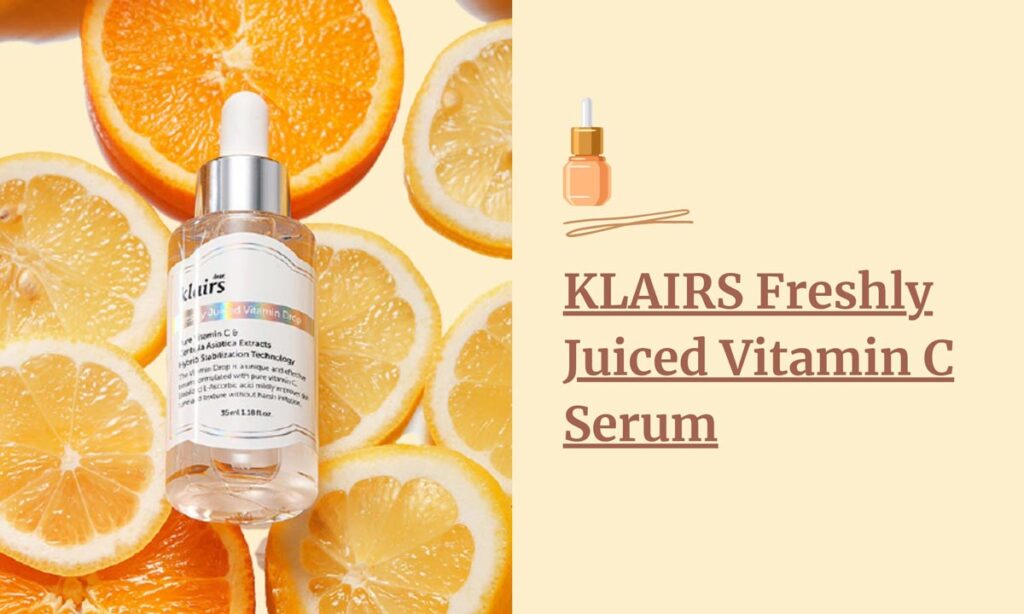

![Best guide to use Azelaic Acid in your skincare routine [Exclusive] Azelaic Acid](https://londonserum.com/wp-content/uploads/2021/08/azelaic-acid-feature.jpg)

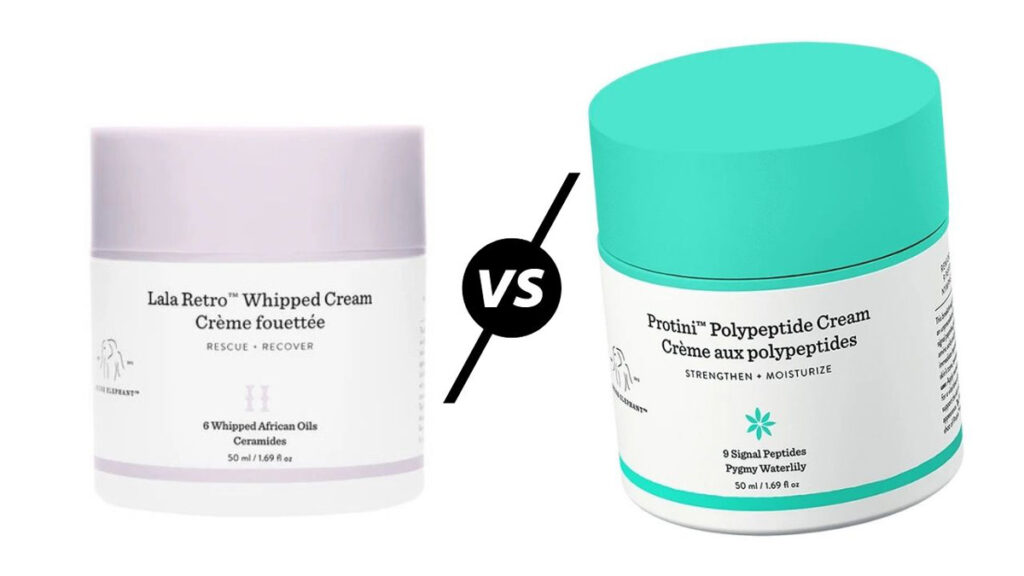
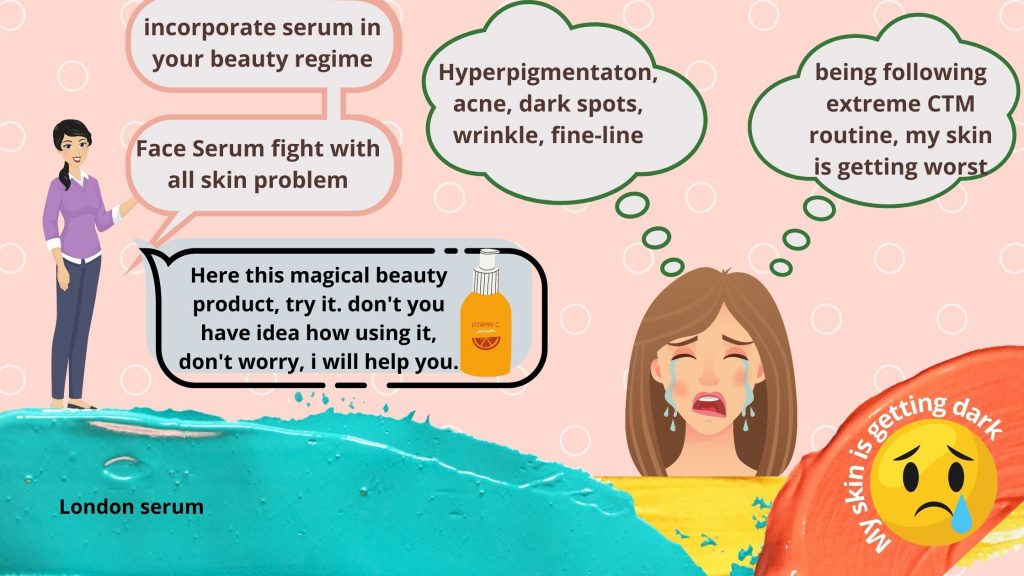

14 Comments
I am certain that he will enjoy reading this. Thank you for sharing it!
I have been surfing online more than three hours today, yet I never found any interesting article like yours. It is pretty worth enough for me. In my opinion, if all website owners and bloggers made good content as you did, the internet will be much more useful than ever before.
Your work is impressive, keep it up!
I have visited several blogs, but the audio feature for songs on this website is truly excellent.
Hey Holly!!! Where did you get your bedside nightstands? I want some larger ones like that.
Great site, amazing style and design, very clean and user-friendly. Gladi Weber Amatruda.
Your work is impressive, keep it up!
Hey Holly!!! Where did you get your bedside nightstands? I want some larger ones like that.
Hi! I read through this post and it reminds me of my old roommate who would always talk about similar topics. I will definitely forward this to him. Thank you for sharing!
I like the valuable information you provide on your articles.
I like the valuable information you provide on your articles.
Right here is the right web site for everyone who really wants tto find out about this topic.
Only wanna say that this is extremely helpful, Thanks for taking your time to write this.
It is very a pity to me, I can help nothing to you. But it is assured, that you will find the correct decision.